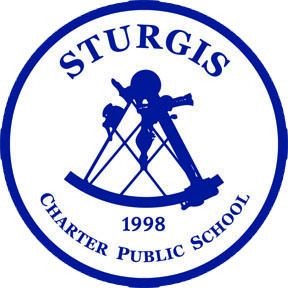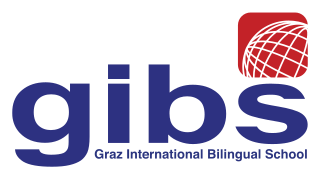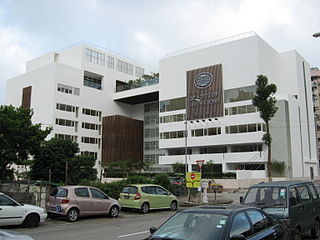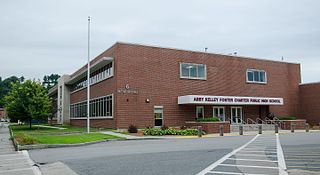Related Research Articles
Further Mathematics is the title given to a number of advanced secondary mathematics courses. The term "Higher and Further Mathematics", and the term "Advanced Level Mathematics", may also refer to any of several advanced mathematics courses at many institutions.

The Sturgis Charter Public School is a dual-campus charter school located in the village of Hyannis, Massachusetts, United States. The school received its charter in February 1998 and opened in September for the 1998–1999 academic year with 162 freshman, 15 faculty and staff, a newly renovated facility, and a $1.2 million budget. The school philosophy is International Baccalaureate for all students.

Copenhagen International School (CIS) is an international, co-educational day school located in the Copenhagen metropolitan area, Denmark. It has around 930 students of over 80 nationalities. English is the primary language of instruction. CIS offers an educational program from pre-kindergarten through grade 12 for students of all nationalities. The school year comprises four quarters, from mid-August through mid-June. Copenhagen International School is designed by C.F. Møller Architects.
The International Baccalaureate Diploma Programme (IBDP) is a two-year educational programme primarily aimed at 16-to-19-year-olds in 140 countries around the world. The programme provides an internationally accepted qualification for entry into higher education and is recognized by many universities worldwide. It was developed in the early-to-mid-1960s in Geneva, Switzerland, by a group of international educators. After a six-year pilot programme that ended in 1975, a bilingual diploma was established.
The Group 3: Individuals and societies subjects of the IB Diploma Programme consist of ten courses offered at both the Standard level (SL) and Higher level (HL): Business Management, Economics, Geography, Global Politics, History, Information technology in a global society (ITGS), Philosophy, Psychology, Social and cultural anthropology, and World religions. There is also a transdisciplinary course, Environmental systems and societies, that satisfies Diploma requirements for Groups 3 and 4.
The Group 1: Studies in language and literature subjects of the IB Diploma Programme refer to the student's first language. Three courses are available: Language A: literature, Language A: language and literature and an interdisciplinary subject, Literature and performance. Students who complete two group 1 subjects, or complete a group 3 or 4 subject that is of a different language of the group 1 subject taken by the candidate, are eligible to be awarded a bilingual IB Diploma on the condition that the candidate obtains a level 3 or greater in both subjects.
The Group 2: Language acquisition subjects of the IB Diploma Programme consist of the nearly 80 additional languages offered and may be studied at the following levels: B, or ab initio. Latin and Classical Greek are also offered and may be taken at SL or HL. To earn an IB Diploma, a candidate must study an additional language, though a second Language A may be taken instead of studying that language as a Group 2 subject.
Luther College is a university college and high school located in Regina, Saskatchewan, Canada. The university campus of Luther College is located on the campus of the University of Regina and serves as a federated college of the university. The high school is located at 1500 Royal Street. There are approximately 1000 students and 300 employees at Luther College with an approximately $20.1M budget across both campuses. As a federated college, Luther College is administratively and financially independent, but academically integrated with the University of Regina. Luther students will earn a University of Regina degree when they graduate. University of Regina.
The Group 5: Mathematics subjects of the IB Diploma Programme consist of two different mathematics courses, both of which can be taken at Standard Level (SL) or Higher Level (HL). To earn an IB Diploma, a candidate must take either Mathematics Applications and Interpretation (SL/HL) or Mathematics Analysis and Approaches (SL/HL), as well as satisfying all CAS, TOK and EE requirements.
The Group 6: The Arts subjects of the International Baccalaureate Diploma Programme consist of five courses at both Standard Level (SL) and Higher Level (HL): Dance, Music, Theatre, Visual Arts, and Film. The transdisciplinary course Literature and Performance is also available at Standard Level. Students seeking the IB Diploma may substitute courses from the other five Subject Groups instead of taking a Group 6 course. A school-based syllabus devised by an IB World School, as approved and externally moderated by the IB, may also form the basis for a course taken in place of a Group 6 course.

The Toronto French School (TFS), founded in 1962, is an independent, bilingual, co-educational, non-denominational school in Toronto, Ontario, Canada. Charles III, as King of Canada, is the royal patron of the school. The school rebranded in 2011 to become TFS – Canada's International School.

Kolej MARA Banting

Old Scona Academic School, often referred to as Old Scona or OSA, is a high school in the Old Strathcona district of Edmonton, Alberta. It is a small academic high school with a population of approximately 340 to 360 students. The school's stated purpose is to provide academically inclined students an opportunity to grow in an environment of intellectual stimulation, and is recognized as one of the top academic high schools in Canada. The school's motto is, "Ever to Excel".

St. Gilgen International School (StGIS) co-educational boarding and day school between the ages of 9 and 18. The school offers a primary and middle school curriculum leading to the highly regarded International Baccalaureate Diploma Programme qualification in the final two years. The language of instruction is English.

The Graz International Bilingual School (GIBS) is an Austrian bilingual (English/German) university preparatory semi-independent charter school Gymnasium in Graz, Austria. The school mainly focuses on languages, offering German, English, Russian, Latin, French and Spanish. Students graduate with the Austrian Matura, the IB Diploma or with both, assuming that they meet the criteria necessary.

The School of the Nations is a Baháʼí-inspired school located in Taipa, Macau,owned by the Badi Foundation.

Abby Kelley Foster Charter Public School is a K–12 school located at 10 New Bond St., Worcester, Massachusetts, United States in former Heald Machine Company buildings. The school was founded in 1998.

Park View Education Centre is a Canadian public secondary school located in the town of Bridgewater, Nova Scotia. It is operated by the South Shore Regional School Board (SSRSB).
The International School (TIS) is a private, co-educational day school located in the Clifton locality of Karachi, Pakistan.
Green Land/Pré Vert International Schools, .
References
- Diploma Programme, Sports, Exercise, and Health Science draft subject guide. International Baccalaureate Organization. 2007.
- Schools' Guide to the Diploma Programme (PDF). Geneva, Switzerland: International Baccalaureate Organization. 2002. Archived from the original (PDF) on 2009-12-29. Retrieved 3 Jul 2009.